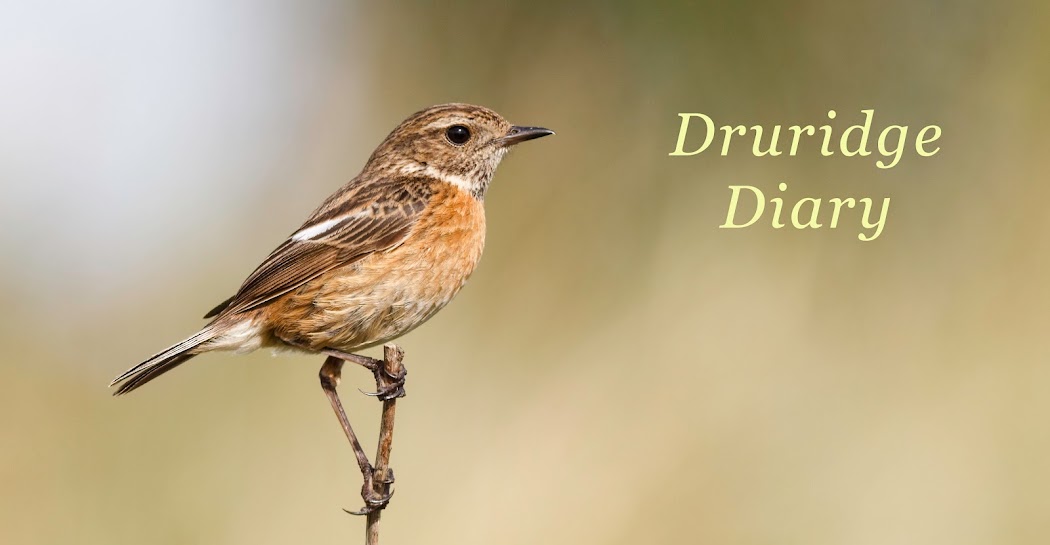Well it was to a see a truck turn up and unload 14 cows and calves onto the wet meadows, at last, some positive management, it might be too late for wader migration and certainly too late for breeding waders, but it's progress! The beast weren't the sturdy highlanders from last year, more a meek looking crowd of continental beef breed, a bit thin in the skin, this might be a good thing though, there's plenty of feeding for 'em!
 |
| The new cooos, looking a bit lost - well they would, wouldn't you? |
This morning, we caught a willow warbler, an adult, undergoing it's main moult. It looked like a willow warbler, it had willow warbler legs and face. But, it was moulting its primaries and the sixth primary was still 'in pin' on both wings.
Now, with willow warblers and chiffchaffs, the only 100% method of identifying the species is whether the sixth primary is emarginated or not (chiffchaffs it is , willow warblers it isn't). So what to do, well the only thing we could do was let it go.....
We also caught...
this adult male blackcap - looking rather tatty
 |
| tatty male blackcap |
 |
| nice... juvenile willow warbler |
offshore, at least 150 gannets were plunge-diving no more than 25 metres from the shore, obviously a shoal of mackerel or sprat had been caught by the outgoing tide.
 |
| Dark-green fritillary |
Ringing totals
wren 1
robin 1 (retrap)
chaffinch 1
willow warbler 2
blackcap 1
(willow/chiff 1)
























